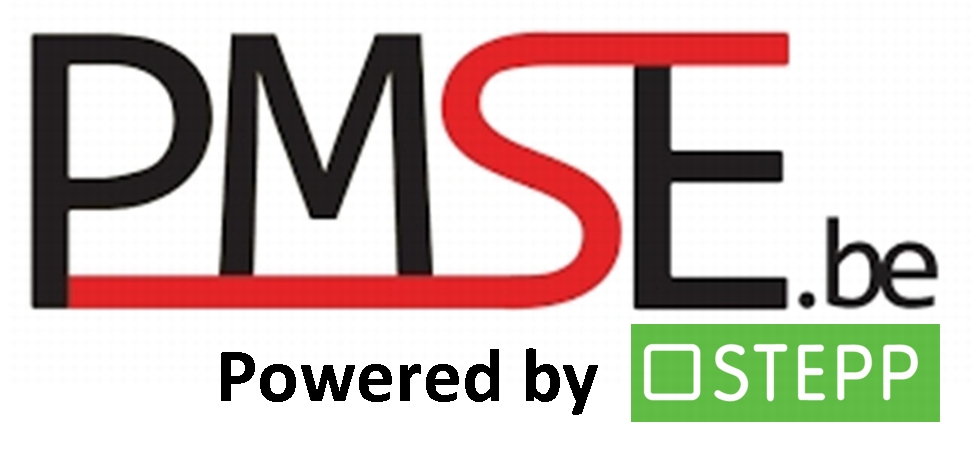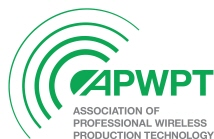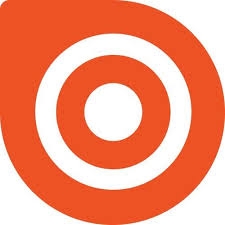|
Laatste update: 30/10/2023



Member of APWPT PMSE-Partners
Brussel, 8 november 2016
Door de explosieve groei van 'mobiel internet' lieten GSM-operatoren zowat 5 jaar geleden hun oog vallen op hopen frequenties om krachtiger 3 en 4G-netwerken uit te rollen. Onder die frequenties ook die die overal te lande dagelijks worden gebruikt binnen de cultuur- en evenementensector. De inzet was niet min: de grote frequentiehonger kon ertoe leiden dat concerten, musicals en events niet meer zouden kunnen doorgaan volgens de huidige technische normen.
Daarom bundelden op dat moment net zoals in andere landen een aantal gebruikers en fabrikanten de krachten in PMSE.be, the Belgian Interest Group for ‘Program Making & Special Events’ en gingen het gesprek aan met de overheid (BIPT). Dit leidde tot de vrijwaring van een aantal frequentiebanden waarbinnen technische oplossingen mogelijk waren.
Vandaag verschuift de rol van PMSE.be naar het opvolgen van problemen die gebruikers overal ervaren bij de roll-out van 4G, en het daarop bieden van technische oplossingen en ondersteuning. Daarom worden de krachten gebundeld met STEPP vzw, het steunpunt voor productionele, ontwerpende en technische krachten van de brede culturele sector.
STEPP vzw verenigt technisch personeel uit de brede culturele sector (theaters, culturele centra, gezelschappen, musea, ...), alsook ontwerpend personeel binnen diezelfde sector (scenografen, ontwerpers, kostuumontwerpers, tentoonstellingsontwerpers, architecten, ...) over alle sectorale barrières heen. STEPP staat garant voor degelijke ondersteuning van zijn leden en de sector door middel van thematische symposia, advies, spreiding van expertise, opleidingen, sensibilisering en het driemaandelijkse tijdschrift STEPP magazine.
De werkgroep PMSE.be kan u bereiken via het emailadres pmse@stepp.be.
 No "3rd digital dividend" - at least for ten years No "3rd digital dividend" - at least for ten years
 PMSE.be reached agreement on channel 38 for PMSE-use PMSE.be reached agreement on channel 38 for PMSE-use
 European commission endangers cultural and creative industries and the freedom of press European commission endangers cultural and creative industries and the freedom of press
 PMSE.be becomes a new member of APWPT PMSE.be becomes a new member of APWPT
 Meer info & links Meer info & links
OPLIJSTING BESCHIKBAAR SPECTRUM 2020
17/04/2020
Op vraag van APWPT werd een oplijsting gemaakt van het huidig beschikbaar spectrum.
APWPT SURVEY
04/06/2019
The European Broadcasting Union (EBU) invites for a Survey on PMSE Service Requirements. Please find further details in the attached document. (deadline june 8th)
No "3rd digital dividend" - at least for ten years
30/11/2015
The World Radiocommunication Conference (WRC-15) 2015, in Geneva, ended yesterday with the solemn signing of the final documents.
Before the conference began, the major concern was that via the ITU-R more frequencies in the UHF TV band of 470-694 MHz would be re-allocated to the mobile phone service providers (IMT). On the contrary -this has not taken place in ITU Region 1! In a "Compromise" with the nations supporting an additional "digital dividend", studies on the use of the entire UHF TV band have been agreed. Results of these studies should not now be discussed before the World Radiocommunication Conference in the year 2023. From today's point of view, any further implementation to IMT will not be possible before the WRC in the year 2027 at the earliest – this should result in at least for 10 years planning security for broadcasting, vent production and program making.
Until the final event of WRC-15, the participating nations continued to have discussions and provide amendments to documents. A full evaluation of the conference documents will only be possible when all of the changes and amendments of the many meeting documents are accessible – when they are, we will inform you.
PMSE.be reached agreement on channel 38 for PMSE-use
23/09/2015
The BIPT council adapted the B10/F2 radio interfaces after a public consultation.
The most important changes of the decision of the BIPT council on radio interfaces:
- Channel 38 available for PMSE.be with license.
The organization PMSE.be asks in response to the public consultation to assign channel 38 on an unlicensed basis, as compensation for the loss of channel 69. The BIPT wishes for the time being not to go in because there some control is needed on possible faults in Humain. On the other hand seems the use of channel 38 in Liege and Namur to be quite possible as far as the field strength of -20dBμV / m at Humain is not to exceeded.
- 1492-1518 MHz available with license
- 1800-1805 MHz available with license
- 694-790MHz unavailable for PMSE in the future
BIPT council will assign 694-790 MHz to systems for the provision of public electronic communication services (LTE) systems. This allocation is expected by 2019/2020. The current broadcasters and PMSE allocations can continue to use the band until that date.
BIPT documents:
European commission endangers cultural and creative industries and freedom of the press
23/09/2014
- In future, the frequency spectrum used for Programme Making and Special Events is to be used by the wireless broadband sector ("Digital Dividend 2"):
- The proposed alternative frequencies designed to standardize systems throughout Europe are not adequate
- Media coverage of major sporting, cultural and media events will no longer be possible in its current form.
- Restrictions on live transmissions endanger the freedom of the press
On September 1st, 2014, the European Commission officially published the final report prepared by expert Pascal Lamy. The report included, amongst other things, recommendations for the future use of the UHF 694-790 MHz band. The entire band is heavily used throughout Europe for radio broadcasts as well as professional wireless productions (Programme Making and Special Events, PMSE). It is to be fully released for broadband use by about 2020. In return, Neelie Kroes, the European Commissioner responsible, announced that other frequency bands would be made available for wireless production tools (e.g. microphones and in-ear monitoring) and standardized throughout Europe. However, these alternative frequencies are grossly inadequate in terms of both quantity and quality. It therefore remains unclear which frequencies should be used in future. By issuing these recommendations, the European Commission is accepting the risk of serious damage to cultural and creative industries and to publicly fund cultural institutions which are not able to operate without wireless production equipment. In addition, this is tantamount to a restriction of press freedom: because of the drastic shortage of frequencies, it will no longer be possible in future for all camera and radio broadcast teams to report live from sporting, political, social or cultural events.
"If the plans were to be implemented in their present form, then a valuable radio spectrum would be irretrievably lost and the consequence would be irreparable economic damage," said Norbert Hilbich, spokesman of the management board of APWPT. "Apart from that, all citizens and consumers will feel the negative consequences. First of all, it will affect events at which a large number of wireless channels are used at once, such as major festivals,
musicals and TV shows. They will not be able to take place in their present form. Live reporting by journalists will also be severely restricted, for example at top games of the Champions League, major soccer events in general or national and state elections. Major international events such as the Eurovision Song contest or the Olympic Games will no longer be possible.”
Germany’s somewhat inflexible stand point exacerbates the problem
"Unfortunately, Germany does not exert a significant influence on the European Commission but is on the contrary in the forefront of the drive to deprive event organizers and the press of this spectrum with undue haste," continued Hilbich. "Following the official statement of the European Commission on the publication of the Lamy Report, the auction in the frequency range 694-790 MHz to mobile broadband, the so-called 'Digital Dividend 2', has
become a fait accompli – in contradiction of several express resolutions passed by the German Bundesrat who is in charge of Broadcast spectrum. One of the particularly influential driving forces is currently the German Federal Ministry of Transport.“
No suitable alternative frequencies in sight
If the 694-790 MHz band can no longer be used in future, neither the European Union nor, for example, Germany will be in a position to offer adequate alternative frequencies. According to Neelie Kroes, incumbent European Commissioner for the Digital Agenda, in future, the 823-832 MHz and 1785-1805 MHz bands will be made available for PMSE and standardized throughout Europe. However, these frequency bands offer very little space
when compared to the previously very densely used bandwidths. From a point of view of quality, too, they are considerably inferior to 694-790 MHz band previously used: The 823-832 MHz band is a so-called duplex or mid gap between the frequencies already used in Germany for mobile broadband. Because of interference from LTE spurious emissions, it has so far been proven to be unsuitable for professional use, or only to a limited extent. In the
1785-1805 MHz band, interference is not yet to be expected in Germany, but the conditions there will result in a relatively poor propagation of radio waves. This is a disadvantage when long distances have to be covered or when the signal has to penetrate backstage areas or the performer’s own body.
Source: APWPT
PMSE.be becomes a new member of APWPT
11/11/2013
The professional event production (concerts, conferences, sport events, elections, entertainment, etc.) require a lot of frequencies (radio spectrum) to run wireless microphones, In Ear Monitoring, audio links, intercom, wireless video cameras and wireless data links for remote control management of lighting and sound. Today available spectrum becomes scarcer and scarcer.
The APWPT promotes on an international level the efficient and demand-driven provision and use of production frequencies for professional event productions as well as safeguarding such production frequencies for the users on the long run.
APWPT is an independent association, working for the benefit of all professionals who use radio spectrum.
More info at www.apwpt.org
Meer info & links
National Organisations:
- BIPT: Belgian Institute for Postal Service and Telecommunication
International organisations:
- APWPT: Association of Professional Wireless Production Technologies
- The Wider Spectrum Group: Frequencies for a creative Europe
- BEIRG: British Entertainment Industry Radio Group
- PMSE.nl: Nederlandse belangengroep draadloze audioverbindingen
International authorities in spectrum policy:
- RSPG: Radio Spectrum Policy Group
- EFIS: ECO Frequency Information System (EFIS)
Archief STEPP-Magazine/Proscenium:

|
